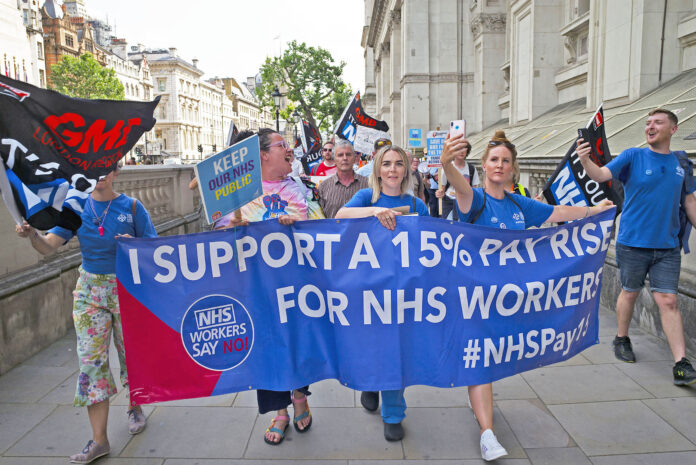
Gareth Bromhall, NHS Ambulance Service Worker, Swansea
Tens of thousands of nurses could take strike action before Christmas. For the first time in its 106-year history, members of the Royal College of Nursing (RCN) have voted to strike. Since, the media has been full of speculation about what a strike of nurses will mean for patient safety and emergency care in the NHS.
Government MPs, in both national and devolved governments, have been assuring constituents that safe staffing levels will be maintained throughout any action. And minimum staffing levels will be adhered to by the union.
What the politicians don’t mention is that safe staffing levels are not being met on a daily basis already!
NHS workers and their unions have been calling for safe staffing levels for years. The reality, of staff shortages, sickness, and the continued underfunding and resourcing of the NHS, means that the notion of safe staffing levels does not reflect reality, despite some limited legislation in Wales and Scotland. One in ten NHS roles are currently vacant.
This issue is compounded by the reliance of NHS employers on agency staff to fill vacancies. NHS hospitals are filled with staff employed by the private sector without NHS terms and conditions. Some NHS trusts and health boards are paying as much as £2,500 per shift to agencies to maintain the bare minimum, according to a BBC report.
Agency staff cost the NHS in England £3 billion last year. With a higher hourly rate, staff are understandably being lured away from NHS contracts, which will only exacerbate the lack of safe staffing.
With reports of nurses and care staff being forced into food banks and to payday lenders, the question of whether NHS staff can afford to strike is being raised. However, with a cost-of-living crisis putting an increasing squeeze on people’s budgets, a common answer is that they can’t afford not to strike!
It’s clear that this is a battle for the NHS, for inflation-proof pay increases, maintaining and expanding workers’ terms and conditions, but also about ensuring a fully staffed, funded, resourced and publicly owned service for the future.
The battle has been started by the RCN this month, but they are likely to be followed by other health unions – with strike ballots underway – in the months to come. The fight to save our public services is a fight for all workers, and one to be fought by the whole workers’ movement. A public strike fund to support all workers, including NHS workers on strike, and public rallies and protests to defend our NHS would get huge public support.






